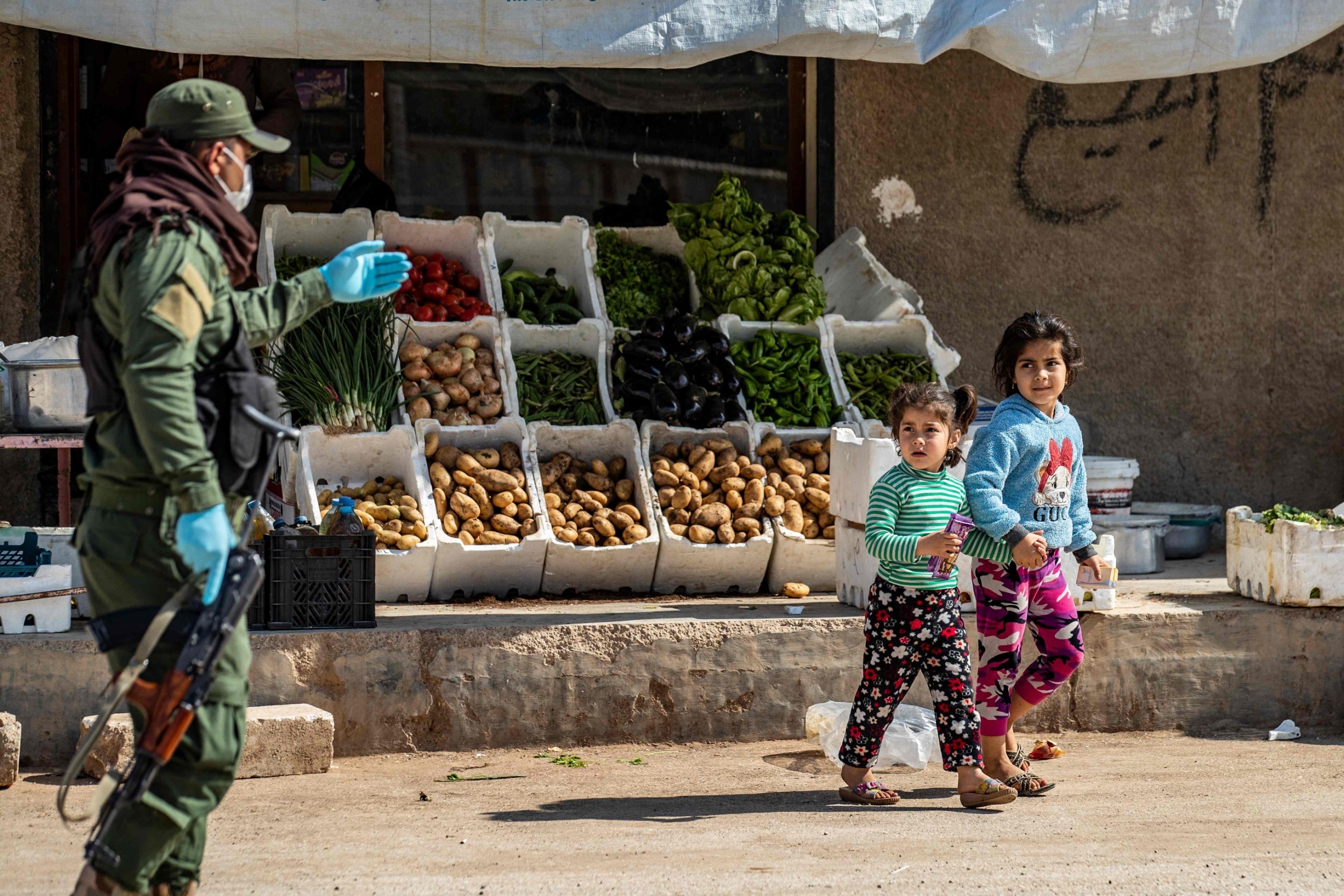Coronavirus: WHO accused of risking lives to ‘appease’ China and Russia after U-turn on north Syria aid appeal
UN health agency drops direct appeal to re-open vital aid crossing from Iraq into Kurdish-held northern Syria in Security Council memo. Bel Trew reports from Beirut on the backlash


The World Health Organisation (WHO) has come under fire for “appeasing” governments rather than protecting lives in northern Syria during the coronavirus pandemic, after it removed a direct appeal to re-open a key aid crossing point from a memo to the UN Security Council.
The original communique stated that NGO partners wanted the 15-member body to urgently reopen the al-Yarubiyah crossing from Iraq to the mostly Kurdish-held northern part of the country.
For the past six years, the Security Council has authorised the delivery of aid through this vital entry point but dropped its approval in January in the face of opposition from the Syrian regime’s key ally Russia, backed by China.
The four-month closure has resulted in a 40 per cent drop in medical aid getting in, according to western diplomats.
This month, the northeast recorded its first Covid-19 case, sparking fears the virus could easily spread in the war-ravaged region where the healthcare system is woefully under-resourced.
Despite this imminent threat, an updated version of the WHO’s memo, which Reuters said was dated Tuesday, removed the request, stoking criticism from rights groups and Syria experts who warned the Geneva-based agency was allowing itself to be pressured by countries.
The original draft WHO memo said: “United Nations partners ... propose the re-opening of Yarubiyah crossing as a matter of urgency. This would have significant impact on the Covid-19 response in NES (northeast Syria).”
The updated memo removed that, instead stating that “new options are needed” to replace aid delivered through Iraq, adding that shipments across conflict lines could not be adequately expanded to meet needs in northeast Syria.
“The WHO should stand firm and not cave into pressure from big powers. This is about saving lives, not avoiding criticism,” Louis Charbonneau, UN director at Human Rights Watch (HRW), said. “The [Security] Council needs to immediately reauthorise al-Yarubiyah.”
Elizabeth Tsurkov, a fellow at the Foreign Policy Research Institute, who has carried out extensive research into the healthcare system in northern Syria, said the altered memo showed the WHO “censoring” itself, and balancing “appeasing the oppressive rulers with seeking to serve the population”.
“Due to the Russian veto on cross-border assistance, the WHO’s response in northeast Syria now depends on the goodwill of the Assad regime,” she told The Independent, adding there had been a massive reduction in aid reaching northeast Syria since January.
“Instead of speaking up about this clearly and stating that the current arrangement does not work, the WHO (which is staffed by many Syrian Ministry of Health employees) chose to censor itself, yet again, to avoid upsetting Damascus.”
Concerns about northeast Syria’s inability to tackle the virus were raised during the Security Council meeting on Syria on Wednesday, with several members calling for the body to help scale up cross-border aid operation.
US Ambassador to the United Nations Kelly Craft said all options should be explored, including the use of al-Yarubiyah.
But Russia’s UN ambassador Vassily Nebenzia warned: “We strongly urge our colleagues not to waste their time on looking for a way to advocate, explicitly or implicitly, to get al-Yarubiyah back.”
Syria has reported 43 coronavirus cases, including one in the northeast, and three deaths.
HRW warned this week that the northeast was particularly vulnerable: restrictions on aid deliveries from Damascus and Iraq – via the Yarubiyah crossing – were preventing medical supplies and personnel needed to treat Covid-19 from reaching two million people who live there.
The New York-based group added that the area was not receiving adequate testing: as of 25 April, the authorities in Damascus had only tested 48 samples from northeast Syria, of which 1 tested positive.
HRW said Damascus had even refused to collect some Covid-19 test samples and had taken two weeks to inform the Kurdish authorities about the first positive test in its region.
The WHO has already faced a fierce backlash for its response to Covid-19, especially from the US. Donald Trump accused it of being “China-centric”, an assertion the organisation denies.
Mr Trump has said he will halt US funding to the agency while Washington reviews its handling of the coronavirus pandemic.
Join our commenting forum
Join thought-provoking conversations, follow other Independent readers and see their replies
Comments
Bookmark popover
Removed from bookmarks